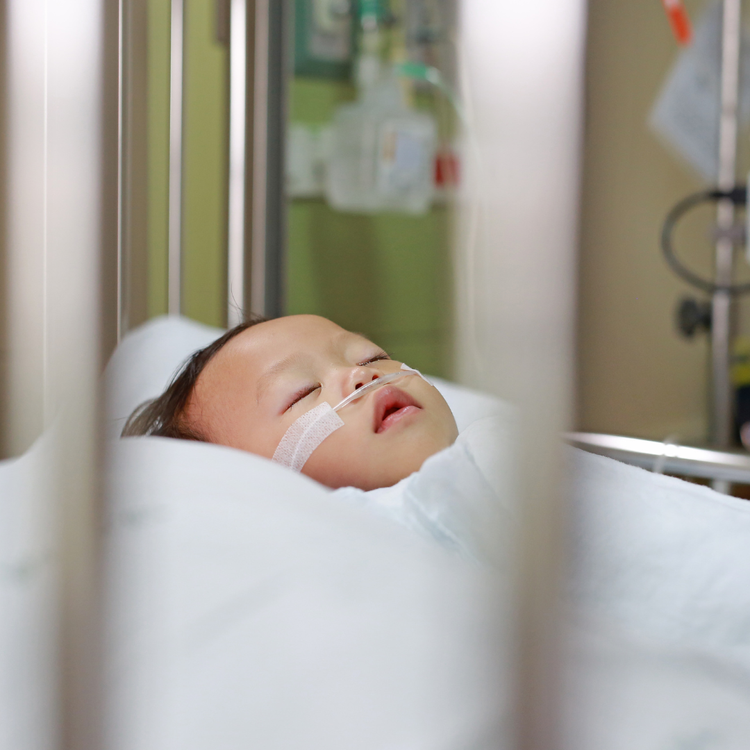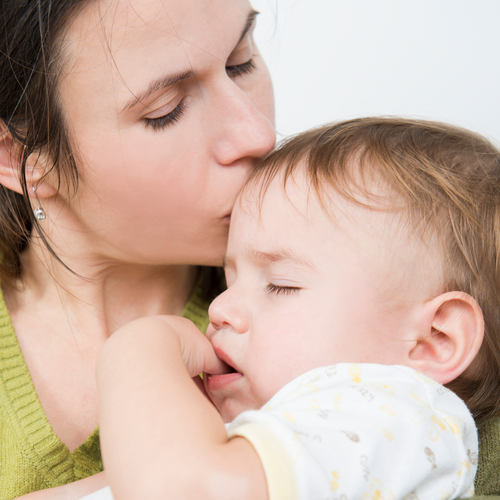RSV Bronchiolitis
Viral Illness Practical Tips
Bronchiolitis is a common respiratory complaint we see in young infants during the winter. It is often caused by RSV (or Respiratory Syncytial Virus).
For parents of children under 2y, this one is worth a read.
What is bronchiolitis?
The simplest way to think about bronchiolitis is that it is inflammation and congestion of the small airways in the lungs (bronchioles). It is not the same as bronchitis, which is more common in adults and is inflammation of larger airways.
What is RSV?
Respiratory Syncytial Virus is the leading cause of bronchiolitis and pneumonia in young infants, but it is not the only cause. It is usually seen in the winter months (although the distribution has changed due to the pandemic and we saw a summer surge last year).
For adults and older kids, RSV looks like any other respiratory illness: cold symptoms, some cough, often mild. In fact, most children have had it by the time they are 2 years old and recover without incident.
For younger children, infants, & those with underlying health issues, however, it can be serious. It can lead to hospitalization, wheezing, decreased oxygen levels, dehydration & other complications.

RSV Symptoms
RSV usually has a predictable clinical course in the sense that we expect it to suddenly worsen a few days into the illness. Symptoms can include:
- Congestion/runny nose (lots of mucus)
- Cough
- Sore throat
- Wheezing
- Fever
- Pneumonia
- Difficulty breathing
- Fatigue
The Pediatrician Mom Tip: If your child is diagnosed with RSV, pay special attention around day 3-5 of their illness – this is often when we see respiratory distress, wheezing, and decreased oxygen levels.
Transmission & Incubation
Occurs via:
- contact with contaminated surfaces — the virus can live on surfaces for a few hours
- contact with respiratory droplets (coughing, sneezing, etc)
Incubation period in most people is 4-6 days, but can range from 2-8 days.
The Pediatrician Mom Tip: Virus can be shed for about a week after symptom onset, but even longer in young infants and immune-compromised individuals
Timeline
In most cases, wheezing and cold symptoms last for up to 2 weeks. If they persist beyond that time, consider a re-evaluation with your doctor to make sure there is no additional or secondary infection (such as a pneumonia).
Testing
RSV can often be diagnosed clinically. In the outpatient setting, the test may or may not be worth doing (can be done via nasal swab or blood test). Testing may be done to help predict the course of illness or determine contact precautions in a hospital setting.
Treatment
Like other viruses, RSV primarily needs time for your body to fight it. It cannot be treated with antibiotics, and we focus instead on supporting the body through the infection using fluids, pain management and rest.
With that said, because it can become severe, some children require hospitalization for oxygen and intravenous fluids. They may also get breathing treatments.
Complications
RSV can be fatal in very young infants (especially in the first year of life), & in older adults with health problems. In the US, fatalities occur primarily in children born prematurely or those with complex heart and lung conditions.

What can I do to help my baby?
Nasal suction
- Use saline mist and a bulb/nose frida to get the nasty mucus out. Caveat: remember your goal is comfort, which means you only want to use this when your child needs it (for example, before feeding or sleeping).
Humidified air
- Cool mist humidifiers or sitting in a warm steamy bathroom
- I am a huge fan of the steamy bathroom – I personally find humidifiers to be annoying to maintain.
Honey (only for children >1yo!!!!)
- Has been shown to help with cough symptoms
Hydration
- This is key! Coughing, rapid breathing, and fever increase the fluid requirements of the body, and most young kids are not as enthusiastic about feeding when they are congested/sick. Focus on smaller, more frequent feeds. Watch urine output. See this post for more.
Manage Fever
- Remember, your goal is comfort! Don’t obsess over numbers, but recognize that when children have fever they often are less comfortable, breathe more rapidly, and refuse fluids.
- Watch them closely and trust your gut.
Prevention
The best way to prevent RSV is to use common sense infection control measures:
- Frequent handwashing for 20 seconds using soap and water
- Stay home when sick
- Face masks
- Distancing from others who are sick
- Disinfect frequently touched household surfaces at least 1-2 times per day (doorknobs, counters, etc).
- For toys: either run them through the sanicycle in your dishwasher, or if they are more delicate, wash with soap and water or a cleaning product that contains bleach.
Synagis (Palivizumab)
This is an FDA-approved monoclonal antibody injection (not a vaccine) that can be given monthly to patients at highest-risk for RSV complications. It is typically given October to March. It is not easily available without prior approval from your insurance company, and tends to be reserved for those at highest risk such as extremely premature infants, or those with congenital heart disease or severe lung disease.
When to call the pediatrician
This is not a comprehensive list. In general, always err on the side of calling your pediatrician if you have any concerns about your child. There is a lot to be said for a parent’s gut instinct, and I promise: your pediatrician would rather you called!
If your child is not improving within a few days, or if they seem to be getting worse, call your pediatrician. Other concerning symptoms include:
- Breathing difficulty (see my video on instagram with more details).
- Rapid breathing (Infant <12mo: more than 60 breaths/minute)
- Retractions: when the skin pulls in between the ribs or at the base of the throat with each breath
- Pauses/irregular breathing
- Nasal flaring
- Grunting with each breath
- Wheezing
- Feeding difficulty or dehydration
- Change in color (blue OR pale)
- Excessive fatigue
- Poor feeding
- Dehydration — see my prior posts for signs to look
- Fever is persistent beyond 3-5 days
- Anything else tickling your spidey sense!!

FAQs
My child was prescribed Albuterol breathing treatments. Is this right?
In general, Albuterol has not been shown to improve RSV outcomes, although in cases where a child has a history of asthma or recurrent wheezing, some physicians will try this — and in some cases it does help.
Some physicians also use nebulized saline.
How do I know it is RSV and not something else?
In many cases, the specific virus causing the symptoms doesn’t matter as much because treatment is supportive. There is some nuance to this, of course, but for most respiratory illnesses in children
Can you get it more than once?
Yes.
Is there anything I should avoid?
Stay tuned for a post on this, but in general we do not recommend nasal decongestants, cough suppressants, or essential oils in children because of potential side effects. In particular, certain essential oils can release VOCs and cause bronchospasm (spasming of the airways) which can worsen bronchiolitis. Some of the biggest culprits here are lavender, eucalyptus and tea tree oil.
Does my child need to stay home from school?
Yes. Keep them home until they are feeling better (able to stay hydrated, acting more like themselves), fever free for >24h, no longer wheezing and respiratory symptoms are improving. Talk to your pediatrician for more guidance.
If my baby has RSV, will they be at higher risk for asthma or other long-term issues?
Some data does support the idea that RSV infection in infancy may increase the risk for recurrent wheezing and asthma over time. However, because most children get infected with RSV but not all have severe symptoms, the truth may be that there is a hereditary predisposition to develop bronchospasm (spasming of the airways) – which is a manifestation of both bronchiolitis and asthma. The truth remains TBD. I know the uncertainty here can be frightening as a parent, but my recommendation is to avoid spending excessive energy worrying about the things ou cannot control!
RSV can be a scary diagnosis to hear as a parent, but I want you to remember that most children have been infected and recovered by the age of 2y.
The overwhelming likelihood is that your child will be fine. And my hope is that with these tips, you will be able to get through it more easily!
